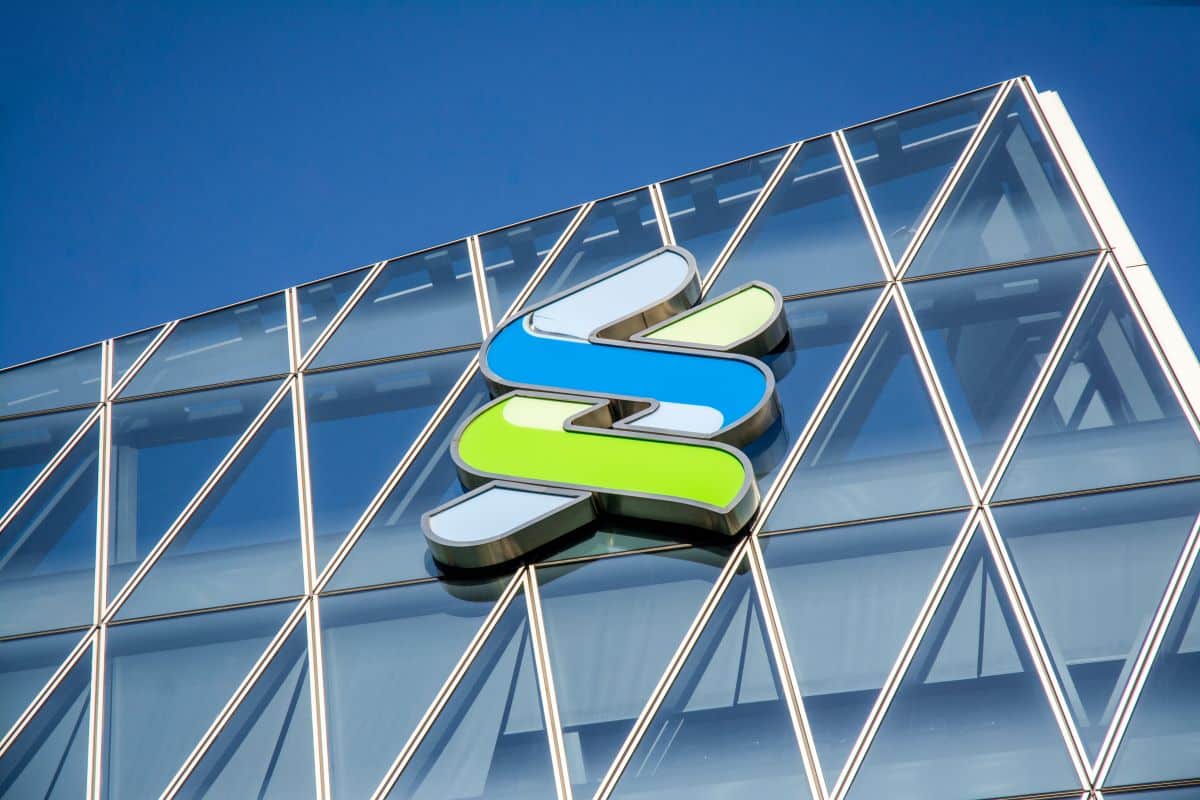Whistleblowers accuse Standard Chartered Bank of conducting billions of dollars in transactions for Iran and terrorist organisations, raising serious concerns about the bank’s compliance with international sanctions. Here’s the full story.
Two Whistleblowers

Recent court filings have revealed that two whistleblowers, Julian Knight and Robert Marcellus, have accused Standard Chartered Bank (SCB) of facilitating billions of dollars in transactions in Iran and various other terrorist organisations between 2008 and 2013. These transactions were allegedly in breach of multiple international sanctions.
“Decloaking” Hidden Information

The whistleblowers, former SCB employees, claim to have uncovered these transactions through meticulous forensic data analysis, which they describe as “decloaking” hidden information in the bank’s economic records.
Analysing the Data

Julian Knight, SCB’s global head of foreign exchange transaction banking until 2011, and Robert Marcellus, a currency trader, partnered with forensic investigator David Scantling to analyse SCB’s transaction data.
$100 Billion in Transactions

The team asserts that they identified over 3.3 million previously undisclosed transactional records, including 20,000 foreign exchange transactions related to Iran worth a cumulative $100 billion.
$9.6 Billion of Transfers Involving Sanctioned Entities

Scantling, a forensic accounting specialist, made a declaration that further specifies 906 transactions involving entities subject to international sanctions between January 2008 and March 2012, amounting to $9.6 billion.
“Front Companies”

Court documents read: “The decloaked data definitely shows that – long after the bank supposedly discontinued its Iranian operations in 2007 – SCB facilitated many billions of dollars in banking transactions for Iran, numerous international terror groups and the front companies for those groups.”
Iranian Banks

The whistleblowers’ findings, detailed in court documents, claim that SCB conducted numerous transactions with and on behalf of Iranian banks, companies, and Middle Eastern money exchanges.
Hezbollah, Hamas and the Taliban

The US government accuses these entities of financing terrorist organisations such as Hezbollah, Hamas, and the Taliban.
Ended Iranian Operations in 2007

The transactions allegedly continued well after SCB claimed to have ceased its Iranian operations in 2007.
Bank Calls Claims “Meritless”

In response to the allegations, SCB has firmly denied any wrongdoing, labelling the claims as “fabricated” and “meritless.”
No Sanctions Violations

The bank points to previous comprehensive investigations by US authorities, which concluded that the whistleblowers’ allegations did not show any violations of US sanctions.
$1.7 Billion

Despite their denial, SCB has previously admitted to breaching sanctions against Iran in 2012 and 2019, resulting in fines totalling $1.7 billion. However, the bank has not admitted to conducting transactions for terrorist organisations.
George Osborne Helped SCB

The court documents also reveal that the UK government used then Chancellor George Osborne to intervene on behalf of SCB in 2012.
Money Laundering

The intervention came as SCB was potentially prosecuted by the US Department of Justice (DOJ) for money laundering.
$300 Million Fine

Osborne’s actions reportedly helped the bank avoid criminal prosecution, leading to a $300 million fine and a deferred prosecution agreement.
Accusations Suggest Far Greater Involvement

Despite these interventions, newly surfaced data from the whistleblowers suggests that the extent of SCB’s alleged misconduct was far greater than previously admitted.
Crucial Analysis

David Scantling, an independent expert with experience in counter-terrorist financing, provided a crucial analysis of the whistleblowers’ case.
Financing Terrorist Groups

He asserts that the data extracted from SCB’s records shows transactions with Iranian banks and companies that finance terrorist groups.
Undisclosed Violations

His declaration challenges the US government’s earlier representations to the court, suggesting that the evidence provided by the whistleblowers contains significant undisclosed sanctions violations.
“Frightening Connection”

The new disclosures have prompted strong reactions from former regulatory officials. Daniel Alter, former general counsel at the New York Department of Financial Services, stated, “This shows a frightening connection to not just commercial entities but terrorist organisations, terrorist front companies for organisations such as Hamas, Hezbollah, al-Qaeda, and the Taliban—things that make up a regulator’s nightmare—and we didn’t know that: it was never disclosed to us.
“Whole Different Story”

He added, “It wasn’t apparent in the data that we had. It’s a whole different story”.
“Fabricated Claims”

SCB continues to defend its actions, stating, “This filing is another attempt to use fabricated claims against the bank, following previous unsuccessful attempts.”
“Reject These Claims”

They continued, “The false allegations underpinning it have been thoroughly discredited by the US authorities who undertook a comprehensive investigation into the claims and said they were ‘meritless’ and did not show any violations of US sanctions. We are confident the courts will reject these claims, as they have already done repeatedly.”
Significant Implications

As the legal proceedings continue, the outcome of this case could have significant implications for SCB and other banks operating in regions where international sanctions have ruled they should not.
Robust Financial Control

The allegations highlight the importance of robust financial control over banks, which are all too often given a slap on the wrist for actions that are demonstrably illegal and immoral and that potentially put lives in danger.
Uncertain Future

It remains to be seen if the court findings will lead to further sanctions against one of the UK’s largest banks.
The post UK Bank Accused of Aiding Iran and Terrorists in Explosive Whistleblower Claims first appeared on Swift Feed.
Featured Image Credit: Shutterstock / Kapi Ng.

